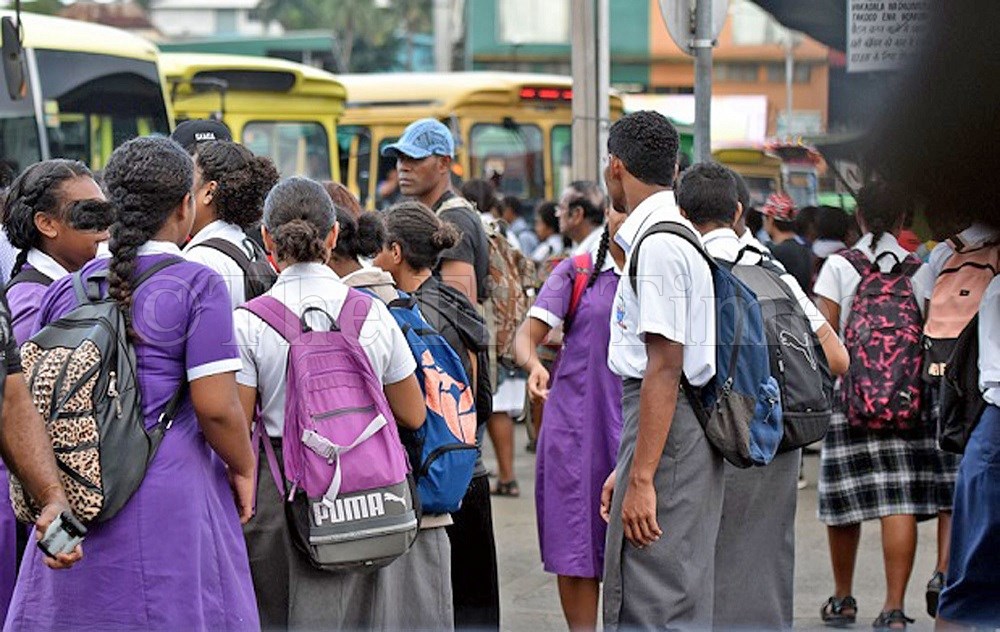There were some interesting figures released when the Fiji Bureau of Statistics carried out the Fiji Multiple Indicator Cluster Survey in March and April this year.
It stated 31.7 per cent children of secondary school age were not attending school when the survey was done.
It revealed that 28.2 per cent children of upper secondary school age were out of school while 3.5 per cent of children of lower secondary school age were not attending any level of education.
The report stated 1.3 per cent children of primary school age were not in classes and 51.5 per cent children completed their upper secondary school education while 94.6 per cent complete their lower secondary education.
As our report on Page 5 today points out, the survey said 98.4 per cent of children successfully go through their primary education, and there was a 99.4 per cent effective transition rate from primary schools to lower secondary schools in Fiji.
It stated a total of 93.4 per cent of children who attended early child-hood education entered primary schools.
The survey was designed by the United Nations Children’s Fund (UNICEF) and collected data on a wide range of indicators for monitoring the situation of women and children in Fiji.
It’s interesting to note the stats, and there will be some thought placed on how our children are now faring in the face of the COVID-19 pandemic.
There can be no doubts about the fact that the pandemic has actually affected people socially, emotionally and academically.
We have been thrust into a world that now has to embrace the new normal!
According to the United Nations Children’s Fund, we are facing a universal crisis, and for some children, the impact will be lifelong.
It states on its website: “Children are not the face of this pandemic. But they risk being among its biggest victims, as children’s lives are nonetheless being changed in profound ways. All children, of all ages, and in all countries, are being affected, in particular by the socio-economic impacts and, in some cases, by mitigation measures that may inadvertently do more harm than good.
“Moreover, the harmful effects of this pandemic will not be distributed equally. They are expected to be most damaging for children in the poorest countries, and in the poorest neighbourhoods, and for those in already disadvantaged or vulnerable situations.”
UNICEF estimates schoolchildren around the world have lost an estimated 1.8 trillion hours — and counting — of in-person learning since the onset of the COVID-19 pandemic and subsequent lockdowns.
As a result, it states, young learners have been cut off from their education and the other vital benefits schools provide.
Every hour in school, it states, is precious, and every child should be given the opportunity to go back to school.
It states, as countries return from academic break, no effort should be spared to reopen schools, as schools are critical for children’s learning, safety, health and wellbeing.
UNICEF estimates that globally around 131 million schoolchildren in 11 countries have missed three quarters of their in-person learning from March 2020 to September 2021.
On the homefront, we are reminded about the fact that our children have not been attending classes since the second wave started back in April this year. That’s the harsh reality of our situation right now.
It does raise questions about how most of our children are faring.
Remember, they have not attended classes, however some have been getting lessons via the internet, and worksheets.
So it is encouraging that we are preparing our children for a return to school.
Our challenge though is to ensure we keep them safe. That means every aspect of this progression back to the classroom must embrace strict safety measures!



